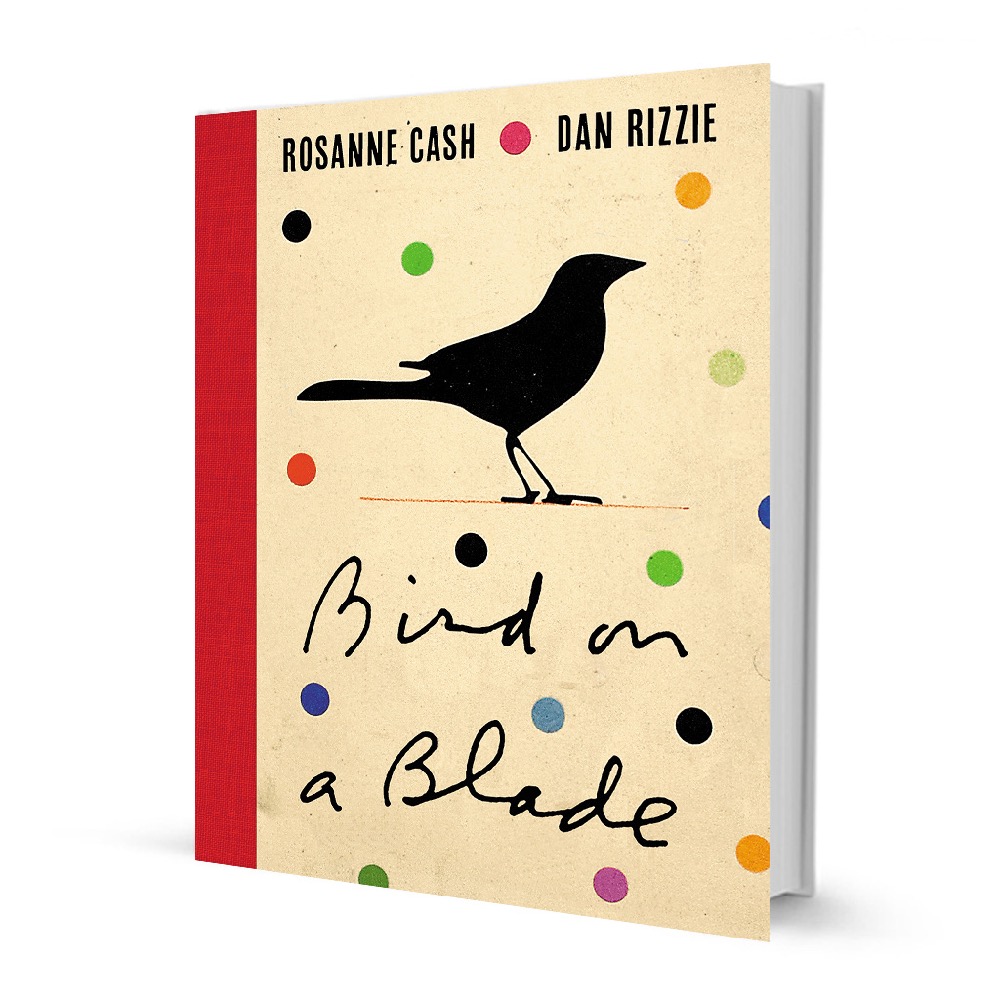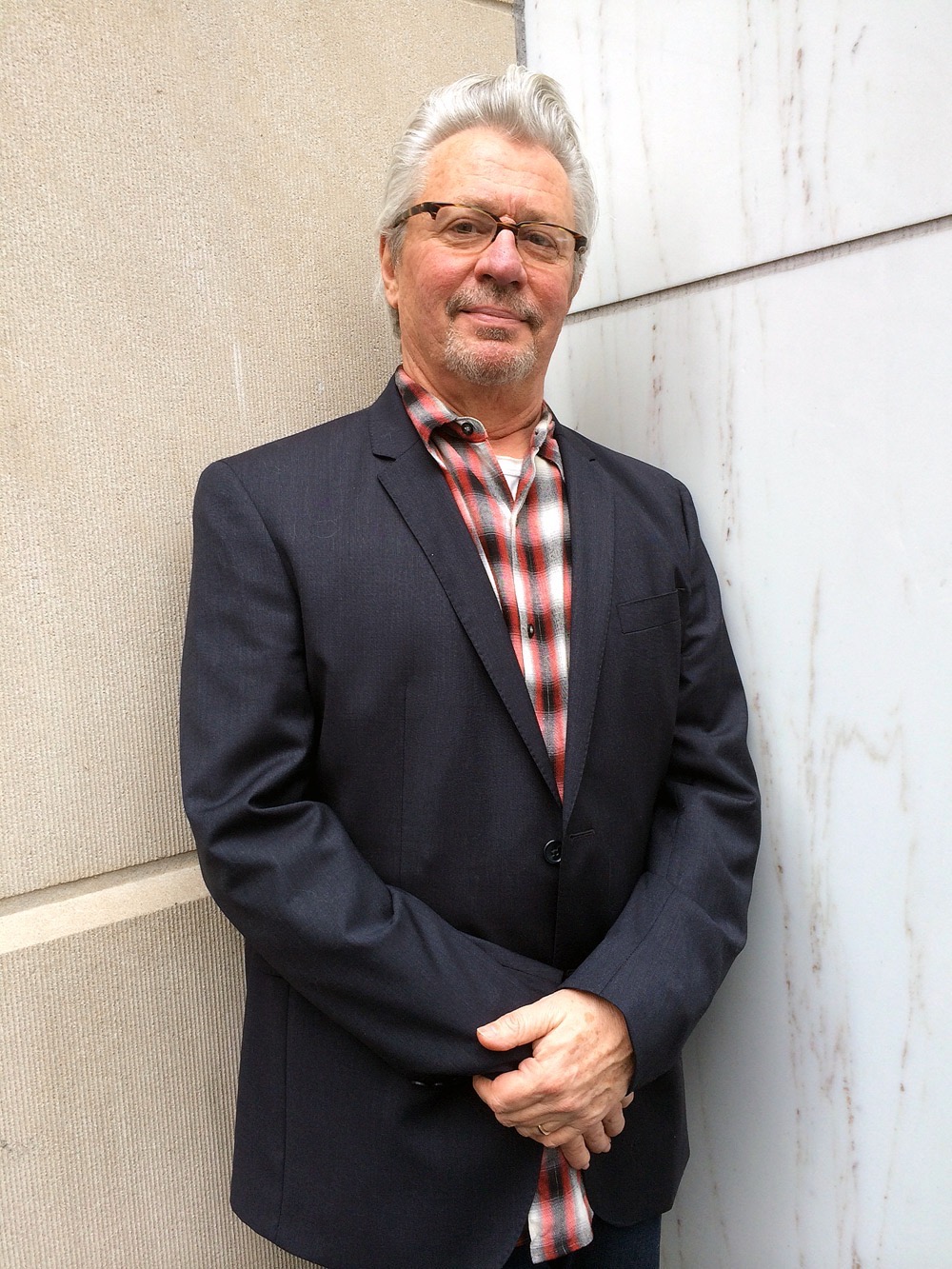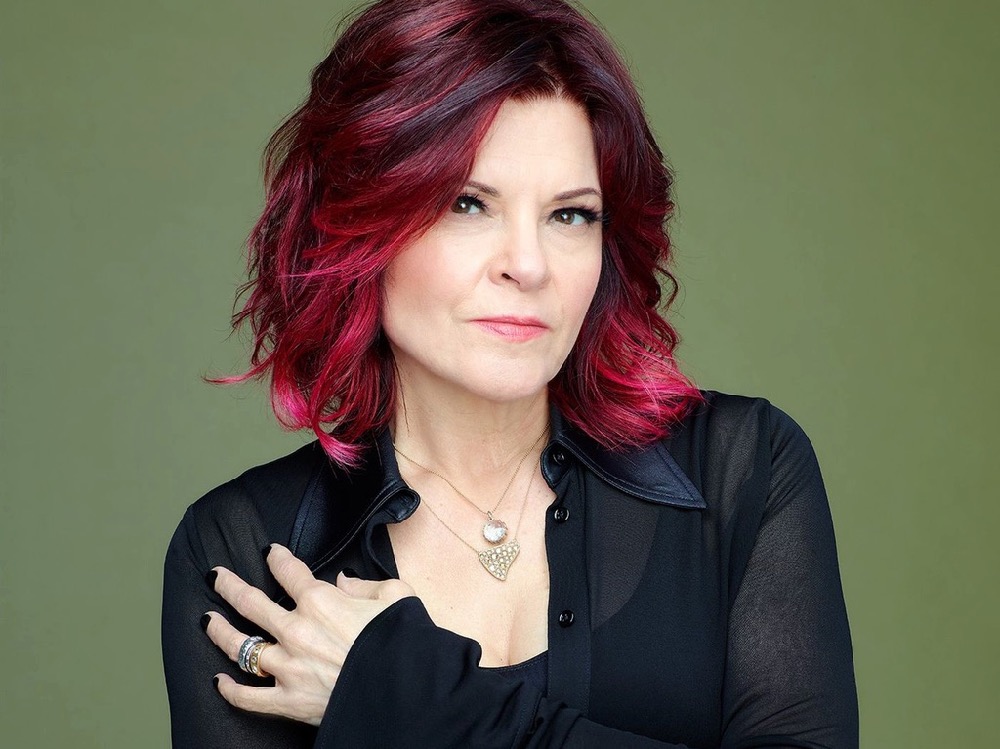
Late Thursday morning, Dan Rizzie was making his way down to his studio in North Haven, searching for a particular box.
“Bear with me for a minute,” the artist murmured into the telephone. “Where’s my books?”
He abandoned the search soon after — he didn’t need them right away — and instead settled in, rewinding to when he and musician Rosanne Cash first met more than 20 years ago, though it wasn’t face to face.
[caption id="attachment_86905" align="alignright" width="398"] Dan Rizzie[/caption]
Dan Rizzie[/caption]
Rizzie wasn’t technically there, but his art was. The daughter of country music trailblazer Johnny Cash was visiting their mutual friends, musicians Taylor Barton and G.E. Smith, in Amagansett when she saw his work hanging on their wall.
“She asked if I’d make something, and I said of course I would,” Rizzie said. “I’ve always been a fan of her music and a big fan of her lyrics. Anyone that knows Rosanne Cash knows that she’s a real poet. She writes beautifully.
“I’ve always thought that her lyrics were very visual to me, the way she puts words together,” he continued. “It’s extremely creative and thoughtful, meaningful. She, in turn, liked my artwork for whatever reason.”
Without knowing it, an artistic partnership was born. A decade later, the idea formed. Nine years after that, it took shape. And last month, it hit bookshelves as “Bird on a Blade,” a new book published by University of Texas Press, featuring 50 pairs of Cash’s lyrics and Rizzie’s images that amplify one another, speaking to the experiences of love and loss, fear and faith, and everyday hope.
“We wanted happy, we wanted dark, we wanted significance,” Rizzie said. “There’s not too much humor in it, but I would say, overall, it’s an uplifting book. It deals with things that I think most people have experienced in their life. Rosanne and I hoped it would be universal, that anybody could pick this book up and find something you could relate to. And I think we were successful in that.”
Their book echoes a tradition held between painters and New York School writers in the 1950s, their collaborations pushing the boundaries of art and poetry. They learned from one another, fostering a certain creative intimacy that elevated both their work and their friendship.
“Really, I think it made us closer friends,” Rizzie said, “and we will always have this collaboration that we did.”
Through hundreds of phone calls and emails, the duo dedicated themselves to the creative process, piecing together 116 pages in just 11 months from, oftentimes, opposite ends of the globe.
[caption id="attachment_86910" align="alignnone" width="1000"] Rosanne Cash. Michael Lavine photo[/caption]
Rosanne Cash. Michael Lavine photo[/caption]
“There’d be times when Rosanne would be in Germany and I’d be in New York, or I’d be in Italy and Rosanne would be in Nashville, and we never stopped working on it — every day, it seemed like, for months and months and months,” Rizzie said. “It went from this pipe dream to a real thing. It was a lot of work. It’s not an easy thing to do. We didn’t just throw a bunch of lyrics together with words.”
The words and images are closely woven, either created specifically for one another or serendipitously matched, the artist explained. And with that, the search for the box resumed.
“There’s one particular image that, for me, let me see if I can find the page. I don’t know where I put my box of books! It’s making me crazy,” he said. “I know I have a box of them. Bear with me again. It’s pretty tragic when you can’t … damn. Where are my books. How is this possible?”
He signed. “You want to give a minute and I’ll call you right back?”
He hung up and kept to his word. “Yeah, I found them,” he grumbled. “They were right in front of me.”
He turned to the painting he had in mind — a dark, moody canvas with a blooming, soft pink peony over top. He made it for a friend of his, whose son died while serving in Iraq.
When he sent the picture to Cash, she replied with her lyrics: “All those who follow after, our children who we pledge, to historians and sailors, who float beyond the edge,” a variation of “The Undiscovered Country.”
“It’s a really, really emotionally charged image for me and I didn’t tell Rosanne that,” he said. “Those were the lyrics that came back. I mean, it was just sort of scary how significant it was.”
He flipped the book shut. With book in hand, perhaps he will finally give it a cover-to-cover inspection, he said, now that the initial shock has passed.
“I’m ready to look at it now,” he said. “At first, I just carried it around with me. I was just in awe that it even happened.”
For more information about “Bird on a Blade” by Dan Rizzie and Rosanne Cash, visit utpress.utexas.edu/books/cash-rizzie-bird-on-a-blade.